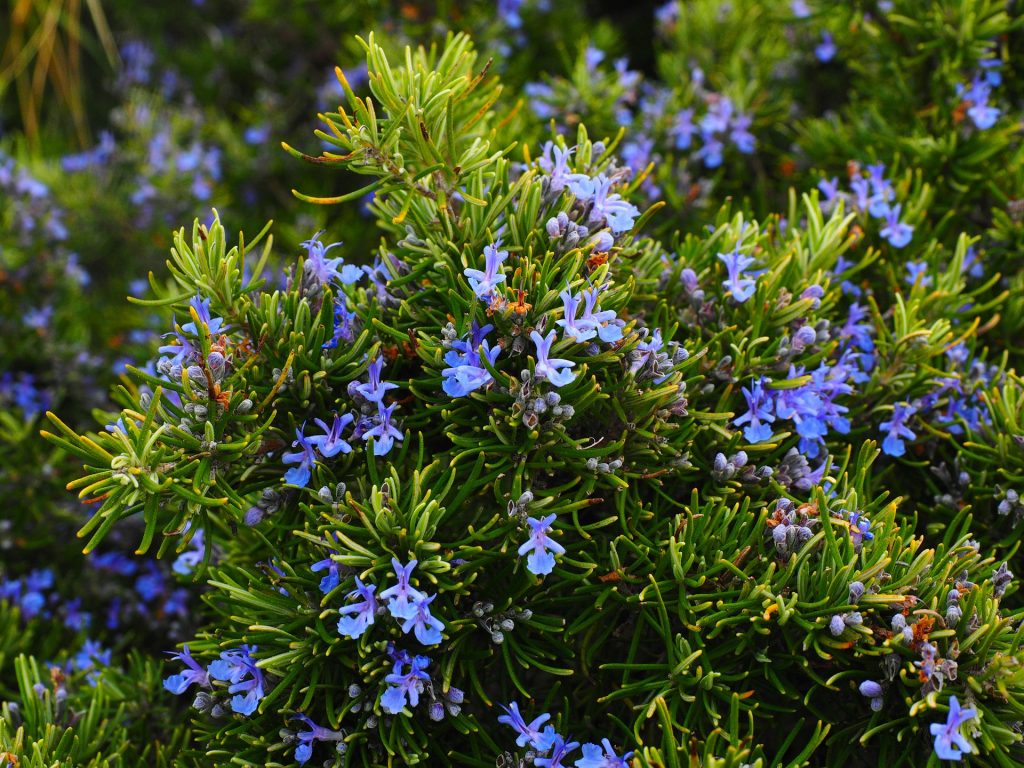 Rosmarinic acid is a metabolite produce by a number of plants including rosemary (Rosmarinus officinalis), lemon balm (Melissa officinalis) and wormwood (Artemisia capillaris). Rosmarinic acid has a number of effects in animals including antiviral, antibacterial, anti-inflammatory and antioxidant activity. Researchers have investigated the effects of rosmarinic acid on the behaviour of animals in order to understand its effect on the brain and central nervous system. In this regard administration of rosmarinic acid to rats causes a significant attenuation of anxious behaviour when the rats are exposed to experimental stress in the from of a maze test. This effect is most evident at lower doses of rosmarinic acid. At higher doses of rosmarinic acid, there in an increase in motivation and locomotion in rats. Therefore rosmarinic acid may have different effects on the brain and central nervous system depending of the dose that is administered. The anxiolytic effects of rosmarinic acid may be explained by its antioxidant activity.
Rosmarinic acid is a metabolite produce by a number of plants including rosemary (Rosmarinus officinalis), lemon balm (Melissa officinalis) and wormwood (Artemisia capillaris). Rosmarinic acid has a number of effects in animals including antiviral, antibacterial, anti-inflammatory and antioxidant activity. Researchers have investigated the effects of rosmarinic acid on the behaviour of animals in order to understand its effect on the brain and central nervous system. In this regard administration of rosmarinic acid to rats causes a significant attenuation of anxious behaviour when the rats are exposed to experimental stress in the from of a maze test. This effect is most evident at lower doses of rosmarinic acid. At higher doses of rosmarinic acid, there in an increase in motivation and locomotion in rats. Therefore rosmarinic acid may have different effects on the brain and central nervous system depending of the dose that is administered. The anxiolytic effects of rosmarinic acid may be explained by its antioxidant activity.

Rosemary (Rosmarinus officinalis) is a source of rosmarinic acid. For general health rosmarinic acid has excellent antioxidant capacity. This antioxidant effect may explain the beneficial effects of the compound on mood disorders such as anxiety.
Eat Well, Stay Healthy, Protect Yourself
RdB
